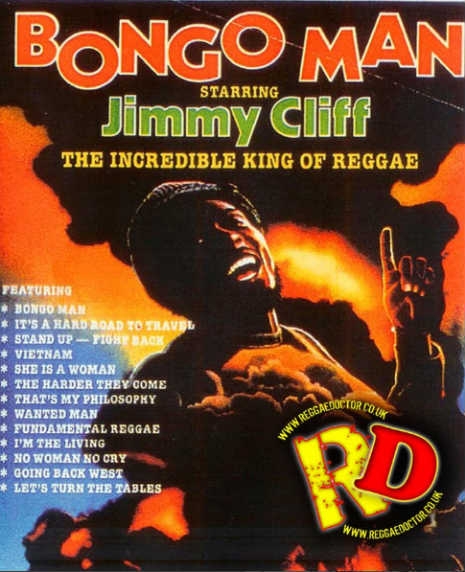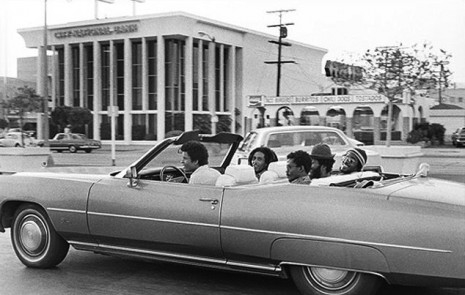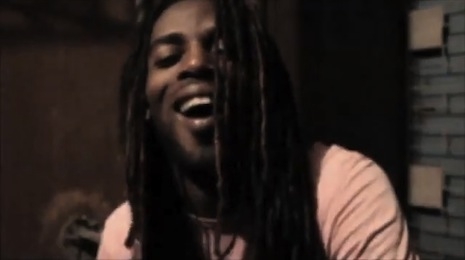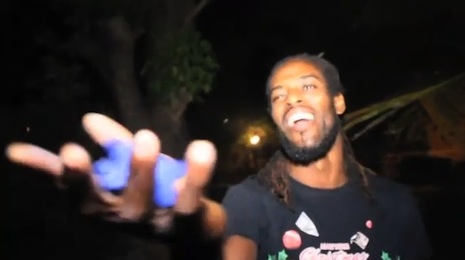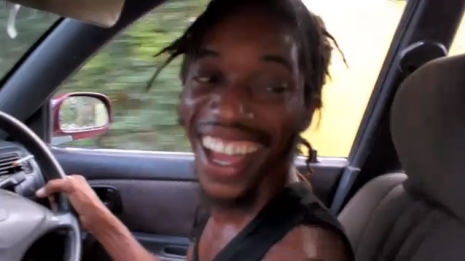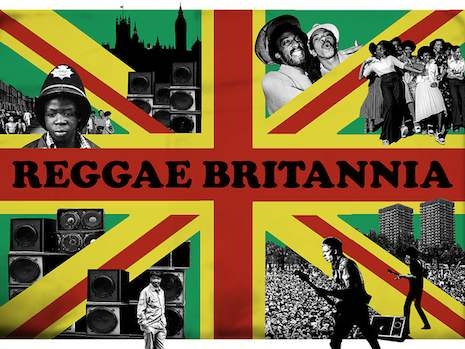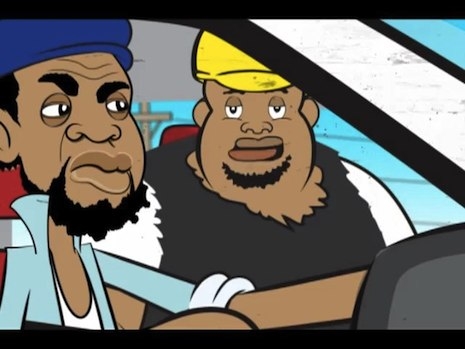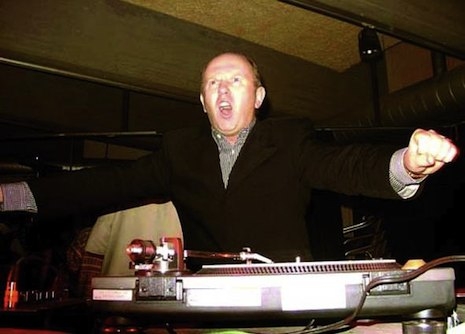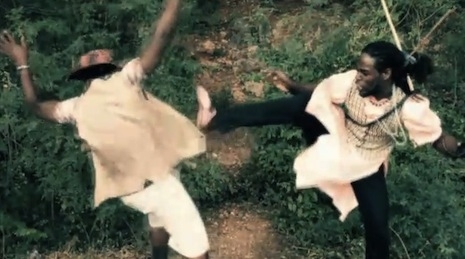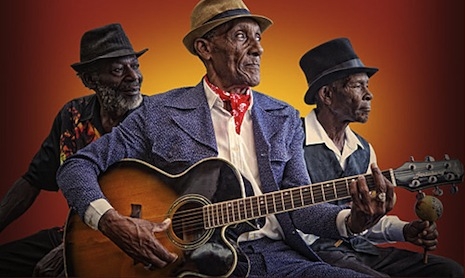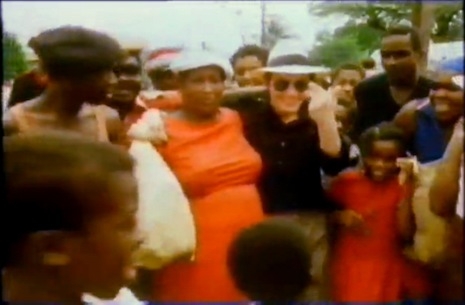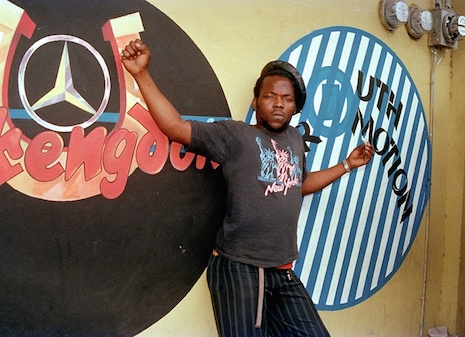
Daddy Shark, 1986
A native of Toronto, photographer Beth Lesser encountered reggae in the late 1970s and fell for the music so hard that she simply had to go to Jamaica and document the vibrant goings-on for herself. In 1980 she and her partner David Kingston started a fanzine named “Live Good Today” (after a song by Prince Jazzbo) for Augustus Pablo’s organization Rockers International. When Pablo generously suggested they include other artists, Beth and Dave published the first edition of Reggae Quarterly, which also soon began to cover the budding dancehall scene.
In 1986 she married Kingston at “a Youth Promotion dance at Sugar Minott’s house.” Lesser’s fabulous documents of this invigorating era have also been collected in her 2008 book Dancehall: The Story of Jamaican Dancehall Culture.
You can see these pictures and many more at London’s KK Outlet until January 30.
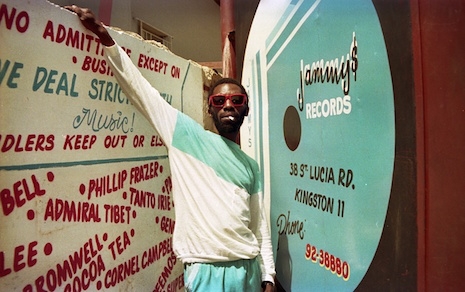
Outside King Jammy’s studio in Kingston
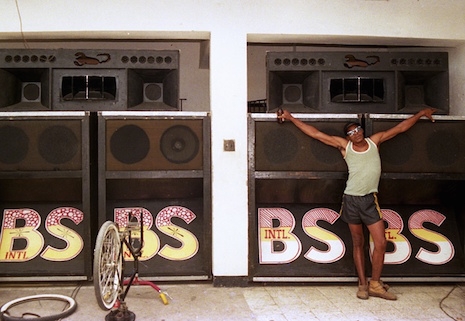
Papa Screw, who was the selector for Black Scorpio sound
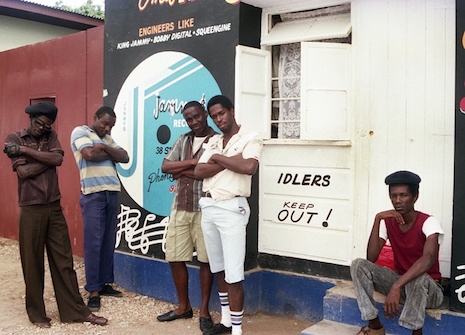
Artists and crew members hang around by a sign instructing people not to idle, outside Jammy’s studio
Many more great pics after the jump…






